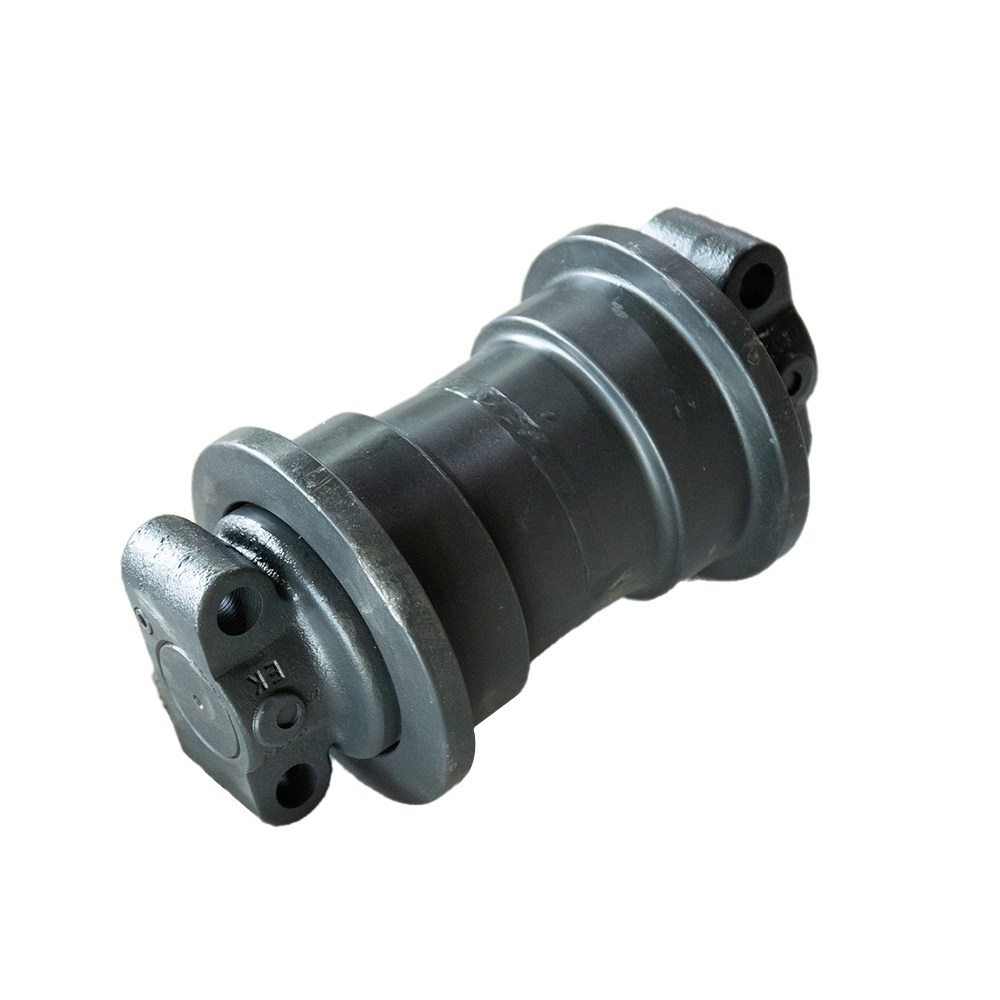Various parts of an excavator contribute to the efficiency of its hydraulic systems in different ways:
- Hydraulic Cylinders: Hydraulic cylinders are responsible for converting hydraulic fluid pressure into linear mechanical force and motion. They play a crucial role in controlling the movement of the excavator’s boom, arm, and bucket. Efficient hydraulic cylinders with properly sealed pistons and minimal internal leakage ensure smooth and precise operation, maximizing the efficiency of hydraulic system energy transfer.
- Hydraulic Pump: The hydraulic pump is the heart of the excavator’s hydraulic system, providing the necessary hydraulic pressure to power various hydraulic functions. Modern excavators often use variable displacement pumps that adjust their output based on the demand from hydraulic actuators. Efficient hydraulic pumps minimize energy losses and deliver the required hydraulic power precisely when needed, improving overall system efficiency.
- Control Valves: Control valves regulate the flow and direction of hydraulic fluid within the excavator’s hydraulic system. They control the operation of hydraulic cylinders and other hydraulic actuators, allowing the operator to manipulate the machine’s movements. Efficient control valves with low pressure drops and precise flow control optimize hydraulic system performance, reducing energy consumption and improving response times.
- Hydraulic Filters: Hydraulic filters remove contaminants such as dirt, debris, and particulate matter from the hydraulic fluid, ensuring clean and reliable operation of hydraulic components. Clean hydraulic fluid reduces friction and wear on hydraulic system components, improving efficiency and extending the lifespan of hydraulic pumps,parts of excavator valves, and cylinders.
- Hydraulic Lines and Fittings: Hydraulic lines and fittings transport hydraulic fluid between various components of the excavator’s hydraulic system. Efficiently designed hydraulic lines with proper sizing, routing, and insulation minimize pressure drops and fluid friction losses, improving overall system efficiency and responsiveness.
- Hydraulic Reservoir: The hydraulic reservoir stores hydraulic fluid and helps dissipate heat generated during operation. Properly sized and designed hydraulic reservoirs maintain hydraulic fluid at optimal operating temperatures, preventing overheating and degradation of hydraulic fluid properties, which can reduce system efficiency.
- Hydraulic Fluid: The choice of hydraulic fluid also plays a significant role in hydraulic system efficiency. High-quality hydraulic fluids with the appropriate viscosity, additives, and thermal stability properties ensure smooth operation and protect hydraulic components from wear and corrosion. Regular maintenance of hydraulic fluid, including proper monitoring, filtration, and replacement, helps maintain hydraulic system efficiency over time.
- Efficient System Design: The overall design of the excavator’s hydraulic system, including component layout, circuit design, and system integration, influences system efficiency. Well-designed hydraulic systems minimize pressure losses, optimize flow distribution, and match hydraulic component capacities to actual machine requirements, maximizing overall system efficiency and performance.
By ensuring that these various components are well-designed, properly maintained, and effectively integrated into the excavator’s hydraulic system, operators can maximize the efficiency and performance of their machines, leading to improved productivity, reduced fuel consumption, and lower operating costs over the machine’s lifespan.
